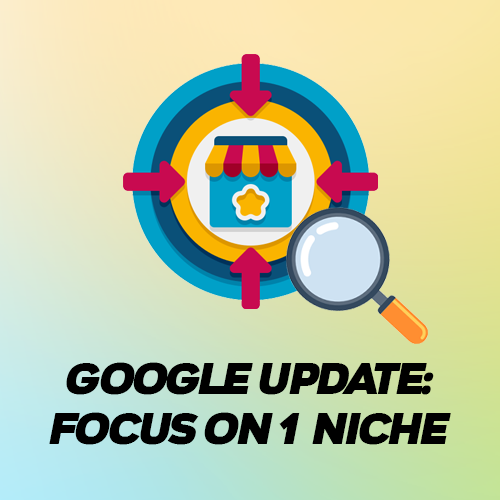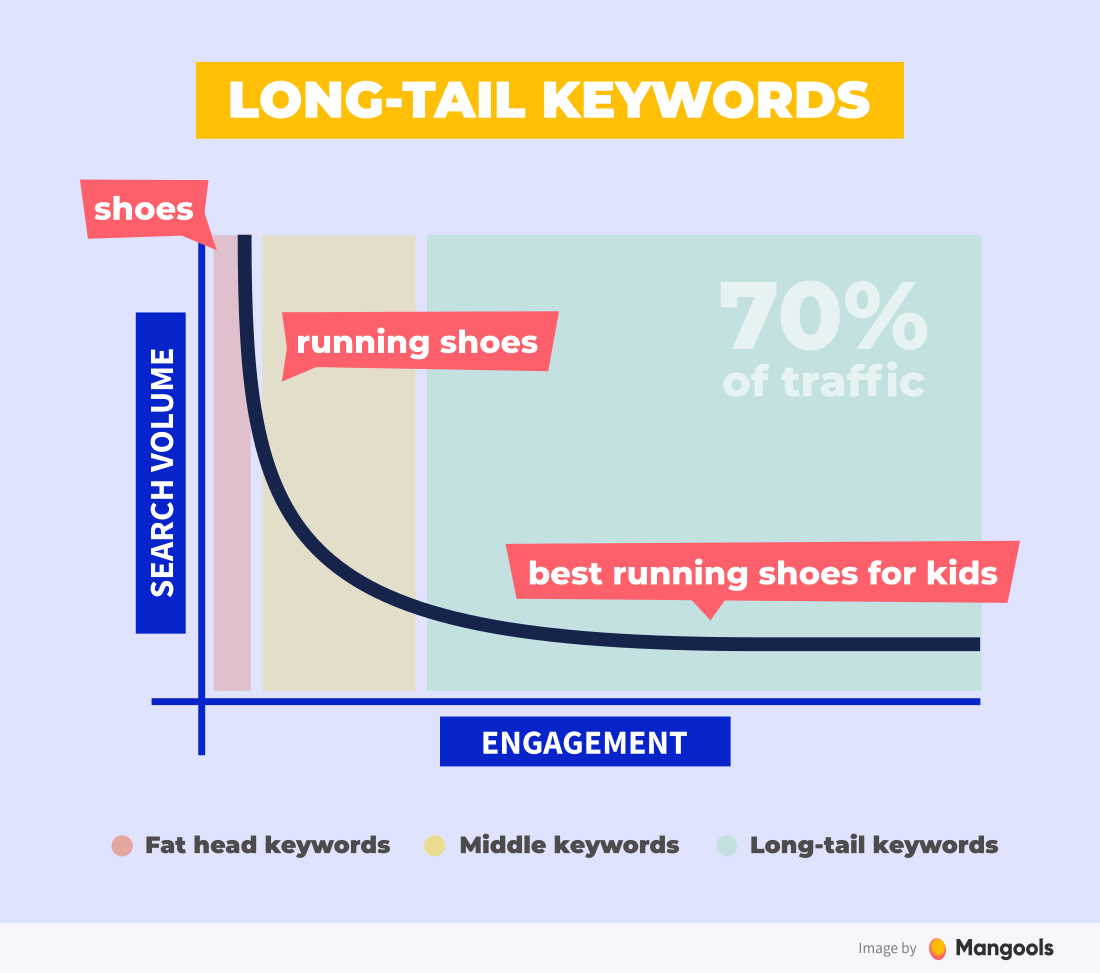Google Core Update: Focus Your Niche

Highlight your Niche, Don’t Overgeneralize
For many business owners, there is a general perception that their online content should be as broad as possible, drawing customers in from all corners of the web.
That line of reasoning has been stomped by the May 2022 Google Core Update! Google wants to prioritize content that highlights the E-A-T model:
- Expertise
- Authoritativeness
- Trustworthiness
How do you improve the E-A-T rating of your site? Get positive reviews on your products, ask for mentions from followers or fellow businesses, and ensure that users feel safe and secure when buying products from your site. Ask for customers to leave positive feedback on sites like Trust Pilot or Google reviews – that is a surefire way to improve your E-A-T!
Be a Specialist: Highlight your Niche
In doing so, it appears Google wants to boost e-commerce stores and content that demonstrate strong expertise in their niche, and do not try to blast out mundane, poor-quality content on everything from celebrity news to “The best couches of 2022.”
This is potentially a huge boon for niche e-commerce business owners. You no longer have to dilute your online content by broadening its scope! Rather, it’s best now to push the other direction, and make your posts specialized to your niche business. Google Search wants to reward e-commerce businesses who provide the highest-quality products in their field, and will no longer let retail giants outrank SME competitors based solely on their larger online domain.
Refine Your Search Results with Longtail Keywords
Picking the relevant keywords to buy Google ads has always been important, but the recent Google Core Update makes longtail keywords more important than ever before. What are longtail keywords? They are the manifestation of “niche” interests within search engines. Longtail keyword phrases are highly specialized and specific, meaning instead of a customer searching…
“Buy shampoo,”
They search:
“Shampoo with all-natural ingredients and anti-dandruff.”
Instead of searching,
“Buy new couch,”
They search
“New cherrywood handmade couch with futon and memory foam cushion.”
Notice the difference? Longtail keywords are generally longer (3+ words), describing very specific products. Review your current product line, and make sure you only buy Google AdWords that describe your product in precise detail! They usually have lower a lower cost-per-click (CPC) as well, so that’s an added bonus for your online marketing budget.

Amazon: The King of Longtail Keywords
While they are a retail giant now, Amazon is the classic example of longtail keyword success. When they were simply a humble bookstore, Amazon did not want to compete by selling 1,000,000 copies of the most recent bestseller. Bookstore giants like Barnes n’ Noble were dominant on these popular titles.
Instead, Amazon aimed to sell books with niche audiences, maybe only selling 10 copies of each title. However, if they were able to dig and find 100,000 books that each had a niche audience of 10, guess what… they still sold 1,000,000 books 😉 In essence, longtail keywords are a big reason why Amazon became the retail giant it is today.
Conclusion: Google Core Supports Longtail Keywords
If you want to benefit from the recent Google Core Update, find longtail keywords related to your product line, bid on low-CPC Google AdWords related to them, and watch your sales grow! If you are having trouble retargeting customers, or want an advertising option outside Google’s Display Network, contact Ad360 today! We have the niche expertise to power your digital marketing success 😊
Make Sales Explode with Context Ads

A Crucial Shopify Advertising Tool: Context Ads
Context ads are a must for Shopify business owners. Instead of targeting potential customers based on demographics or “behavior” – like ad retargeting – context ads provide a refreshing alternative when advertising a Shopify store.
That’s because context ads don’t require any heavy analysis or previous user data! Instead, business owners simply pick key phrases and subjects related to their line of products. From there, context ads automatically “crawl” the web, searching for blogs and site that cover similar material. That way, only customers with interests specific to your industry see the ads!
Who Benefits Most from “Context Ads” Shopify Advertising Tools?
This powerful Shopify ad tool is great for new business owners, who do not have a cache of customer data to inform their promotional outreach. In fact, the “web crawling” service offered by “context” Shopify advertising tools is very similar to the way Google “crawls” webpages when indexing and ranking sites.
For example, let’s say you sell car accessories – think seat covers, custom paints, sound systems, and other little gadgets for a smooth driving experience. Using “context ads” your Shopify advertising tools will place paid advertising on sites that are found to use keyword phrases like, “cars,” “auto parts,” “customized car accessories,” and “personalized car items.” Maybe you even include terms like “gearhead” and “car lover” to catch a wider crowd!
People seem to respond well to contextual ads – one marketing study found context ads produced 2.2x better recall in potential customers than other ad channels. That could be due to the fact users are seeing the ads in a more relevant online environment, meaning their mind is already primed and ready for products related to your industry!
Furthermore, contextual ads have a place in in your future Shopify advertising strategy for a simple reason: they are far less invasive in terms of private data than other targeted ads. As the web looks to tighten up access to user data, contextual advertising spots will be unaffected by more stringent data protection measures.
Conclusion: Increase your Shopify Sales by Deploying Contextual Ads
Contextual ads were valued at $140 billion in 2020 and are only growing every year. If you are struggling with your advertising strategies for Shopify, it is highly recommended that you check out context ads!
If you prefer some assistance revitalizing your advertising strategies for Shopify, reach out to try a free demo from Ad360 today! Check out our app in the app store to refine your online marketing tactics and increase your sales on Shopify.
Try for yourself the Ad360 App for Shopify with a 14-day Free Trial!
Google Retail Search Released to the Public

Searching but Not Finding: the Phenomena of Search Abandonment
Picture the common scenario, where, frustrated by the lack of results on their search, a customer leaves your site without buying anything.
That simple snafu costs ecommerce retailers over $300 billion a year.
Amazing, right? Such a simple hitch in the process can bleed billions of dollars in the ecommerce industry. Even retail giants like Macy’s and Ikea suffer from search abandonment, so you are not alone!
Luckily enough, Google recently released its Google Retail Search to the general public, bringing the power of Google’s search engine to all online retailers. Read below how this new Google tool can help increase your sales on Shopify!
Why Google’s Retail Search is a Win for E-Commerce
A recent poll discovered that 94% of US customers abandon an online shopping session due to irrelevant search results. Imagine that a shopper types in, “comfy winter sweater” to your search bar… they probably won’t get very precise results!
However, with Google Retail Search, backing software would be able to link the customer’s buying intent, no matter how general in their search, to specific products available in your store. Most ecommerce sites have search bars that, if the specific product name is typed, can provide the result quickly for users.
But what about all the potential customers who don’t know your brand’s products yet? Navigating around to find the item that fits their match can be a chore they refuse to do, especially when ecommerce giants may be able to provide better search matches.
How Google Retail Search Helps Increase Sales on Shopify
Google Retail Search will help boost your Shopify sales in a few ways:
1. Advanced Query Understanding
This function provides high-quality search results for even the broadest searches. If you sell footwear, and someone types in, “shoes for the beach,” instead of telling them, “What can’t find that specific product, can you refine your search?” It will bring up a list of all your products that fit the context.
2. Semantic Search
You will be able to better gauge “customer intent” to match them with the best-fitting products on site.
3. Personalized Results
Google Retail Search will also factor in each user’s previous searches through their search engine optimizing their experience and providing them tailor-made search results, even on your Shopify site! All of this is done automatically for your ecommerce business.
4. State-of-the-art Customer Data Security
While the search results provided by Google Retail Search are personalized, Google implements “strong access controls” to ensure your customer data is anonymized and protected
Conclusion: Google Retail Search is Worth a Trial
As a certified Google partner, Ad360 knows the power of leveraging Google’s incredible search engine, ad platform, and analytics technology. If you want any advice or help implement Google Retail Search to your ecommerce site, contact us at Ad360 today! We provide a free website review, along with a free trial. That way, we can test your search query and see what comes up 😊 Less search abandonment could increase sales on Shopify, so don’t hesitate to check out Google Retail Search!